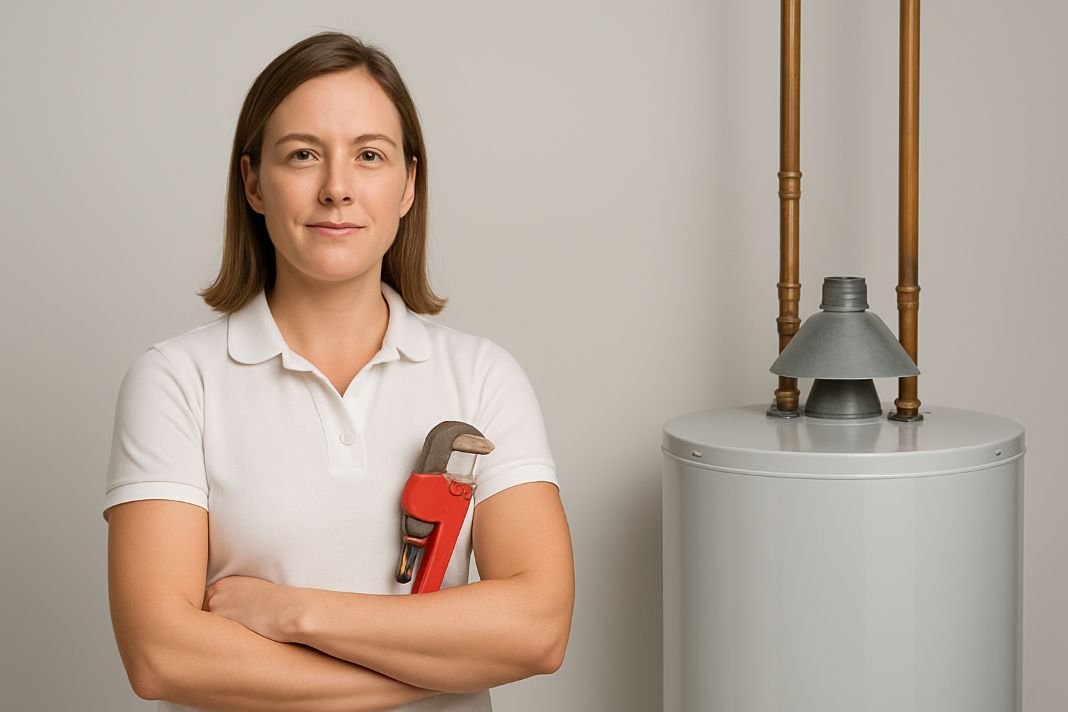How do I know if my water heater needs repair in Vancouver WA?
Your water heater may need repair if you are experiencing inconsistent water temperature, leaking around the tank, rusty or discolored water, or unexplained increases in your utility bill. These symptoms often point to problems with components such as the thermostat, pressure relief valve, heating element, or sediment build-up inside the tank. Recognizing these signs early helps homeowners in Vancouver WA and nearby areas avoid bigger plumbing issues and higher costs.
Here's What We Have Covered In This Article
Common Signs of Water Heater Trouble
Fluctuating Water Temperature
If the water from your taps or shower constantly shifts from hot to cold, it might be due to a faulty thermostat or buildup of mineral deposits on the heating element. Households in Vancouver WA with hard water are especially prone to mineral scaling. This reduces heating efficiency and causes irregular water temperatures.
Odd Sounds from the Tank
Popping, knocking, or rumbling noises coming from your water heater can indicate sediment buildup. Over time, minerals from the water settle at the bottom of the tank, trapping heat and creating noise. These sounds often signal your system is working harder than it should and using more energy. Regular flushing can prevent these problems.
Rust-Colored or Dirty Hot Water
Rusty water usually comes from corrosion inside the tank or the breakdown of the sacrificial anode rod. If you notice brown or yellowish water from your hot tap, especially if you live in an older home in Vancouver or Camas, it is a clear sign the tank may be deteriorating from the inside.
Water Around the Base of the Tank
Any pooling water or dampness around the base of your water heater should be taken seriously. This can indicate a leaking drain valve, failed pressure relief valve, or even a hairline crack in the tank itself. Vancouver homes often have their water heaters installed in garages or basements where unnoticed leaks can cause structural issues over time.
Stay Ahead of Costly Repairs
Annual maintenance reduces breakdowns and keeps your hot water flowing. Ask us about flushing and anode rod services.
Pro Tip: If your water heater is more than 10 years old and leaking from the bottom, replacement is usually more cost-effective than repair.
Could it just be condensation?
Sometimes what looks like a leak might be harmless condensation. If your water heater is located in a cooler part of the home, like a garage or basement, moisture can form on the tank’s surface when warm water inside meets cooler air outside. To check, wipe the tank dry and watch to see if water forms again evenly across the outside. If it does, you are likely seeing condensation, not a leak.
Where is the Water Coming From?
Water heater leaking from top
Leaks near the top usually stem from loose or worn out connections at the cold water inlet or hot water outlet. Sometimes tightening these fittings can stop the leak, but if the connectors are corroded, replacement may be necessary.
Water heater leaking from side
If water is seeping from the side of your tank, the temperature and pressure relief valve might be faulty. This valve is a safety mechanism that releases water when the tank becomes too hot or pressure gets too high. If this component fails, it can cause steady leaks.
Water heater leaking from bottom
Leaks from the bottom often point to either a broken drain valve or a failing tank due to internal corrosion. If your tank is leaking from underneath and is more than 10 years old, it is usually more cost-effective to replace it rather than attempt a repair.
What to do if your water heater is leaking
Turn Off the Power
If your water heater is electric, turn it off at the circuit breaker. For gas water heaters, switch off the gas valve. This helps prevent any risk of electrical hazards or gas leaks.
Shut Off the Water Supply
Look for the cold water shutoff valve near the top of the heater and turn it clockwise. If you cannot access this, turn off your home’s main water supply.
Observe and Identify the Leak
Once the water flow is stopped, dry the area and monitor where new moisture appears. This will help a technician diagnose the issue more quickly and accurately.
Why Water Heaters Fail in the Vancouver Area
-
Hard water with high mineral content contributes to faster sediment buildup
-
Seasonal temperature changes cause tank expansion and contraction
-
Older homes may still have original systems or outdated pipe fittings
-
Local water pressure varies and may exceed safe levels for aging tanks
Pro Tip: Flushing your tank annually is one of the easiest ways to extend the life of your water heater and improve energy efficiency, especially important in hard water areas like Vancouver WA.
Should You Repair or Replace Your Water Heater?
When Repairs Make Sense
Repairs are often worthwhile when the tank is under 8 years old and the issue is limited to a valve, thermostat, or minor leak. Vancouver homeowners can usually expect repairs to be completed the same day by local plumbing services.
When Replacement is the Better Choice
Replacement is typically recommended if your water heater is over 10 years old, leaking from the tank, or no longer meets your family’s hot water needs. Upgrading to a more energy-efficient model can also reduce your monthly utility bills and improve reliability.
Maintenance Tips for Vancouver WA Homeowners
Flush the Tank Once Per Year
This helps remove sediment and prevents overheating. It is especially important in areas like Vancouver and Battle Ground with mineral-heavy water.
Check the Anode Rod Every Two to Three Years
The anode rod attracts corrosive elements to protect the tank. Once it wears out, the tank becomes vulnerable to rust.
Inspect All Valves and Connections
Look for signs of dripping or white mineral deposits around the fittings. Replacing worn out washers or connectors can prevent future leaks.
Consider a Pressure Regulating Valve
If your water pressure is high, especially in new developments or near hillsides, installing a pressure valve protects the water heater and plumbing system from stress damage.
Is a tankless water heater better for your home?
Tankless units heat water only when needed, eliminating the need for a storage tank. They are efficient and provide endless hot water, which is great for families or homes with multiple bathrooms. While installation costs more upfront, energy savings over time can make it a smart investment.
Local energy rebates are sometimes available for energy-efficient tankless systems. Contact your city utility provider or Sound Plumbing and Drain to learn about current offers.





